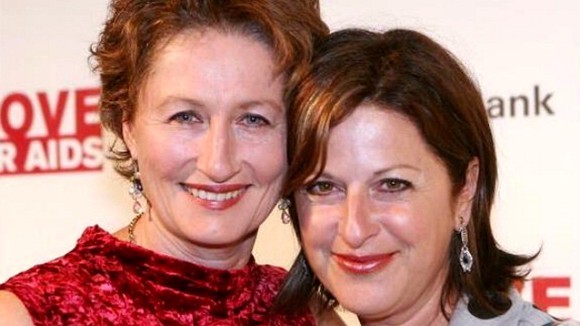Australian law doesn’t acknowledge same-sex marriages performed overseas. Tomorrow MPs vote on a bill to change this. Kerryn Phelps on what recognition of her 15-year marriage will mean to her
Tomorrow a Bill is due to be debated in the Australian Parliament to recognise same-sex marriages performed overseas.
The current ban was inserted into the Marriage Act as recently as 2004. It explicitly prohibits any recognition of overseas same-sex marriages in Australian law. This is despite the last census showing at least 1300 same-sex couples have travelled overseas to marry since it came into force.
Fifteen years ago my partner and I married in New York City in a religious ceremony. At that time our marriage was not recognised by the law in any country.
In the interim we have raised two adult children and seen them launch their careers, adopted our youngest daughter who is still in junior high school, built successful businesses, acquired joint property and engaged constructively in Australian public life. What we have not done is have our marriage recognised legally by our country.
In the intervening years 14 countries have recognised marriage equality including, most recently, France and New Zealand.
In 2011, New York State changed its law to recognise same sex marriage, and we returned to complete the process we had begun back in 1998. We were issued with a marriage certificate and an apostille ensuring that our marriage would be recognised internationally in those countries where marriage equality has been introduced.
Israel, Japan and Slovenia do not currently perform same-sex marriage but they do legally recognise ours.
In this age of globalisation with mobile world populations, blocking the recognition of international legal marriages or trying to foist a second-rate system of civil unions or de-facto status on us makes no sense.
It creates a bureaucratic nightmare for Australians married to citizens of countries where their marriage is recognised.
As Australian citizens married overseas but living in Australia, we have had to pay lawyers to advise us on how we can protect ourselves, our relationship and our children’s rights in the event of illness or death of one or both of us.
If our marriage was recognised, there would be no questioning of the nature of our relationship and those protections would be automatic.
The marriage equality movement is the story of the civil rights movement in the United States rewritten.
The “separate but equal” doctrine in United States constitutional law justified entrenched legal discrimination based on race.
It was not until 1967 that race-based restrictions on marriage were eliminated from the last of the States.
“Separate but equal” is not equal. It never was. Yet that is what we have here in Australia in 2013, based on gender rather than race.
We want to be proud of our country and its leaders.
We want our children to be able to believe that justice and equality are inherent in our system of government.
Continued refusal to acknowledge same sex marriages performed overseas fails the fairness test. It fails the common sense test.
Tomorrow Australia has the opportunity to correct this.
Author: Kerryn Phelps
Publication: newmatilda.com
Publication Date: 19 June 2013

